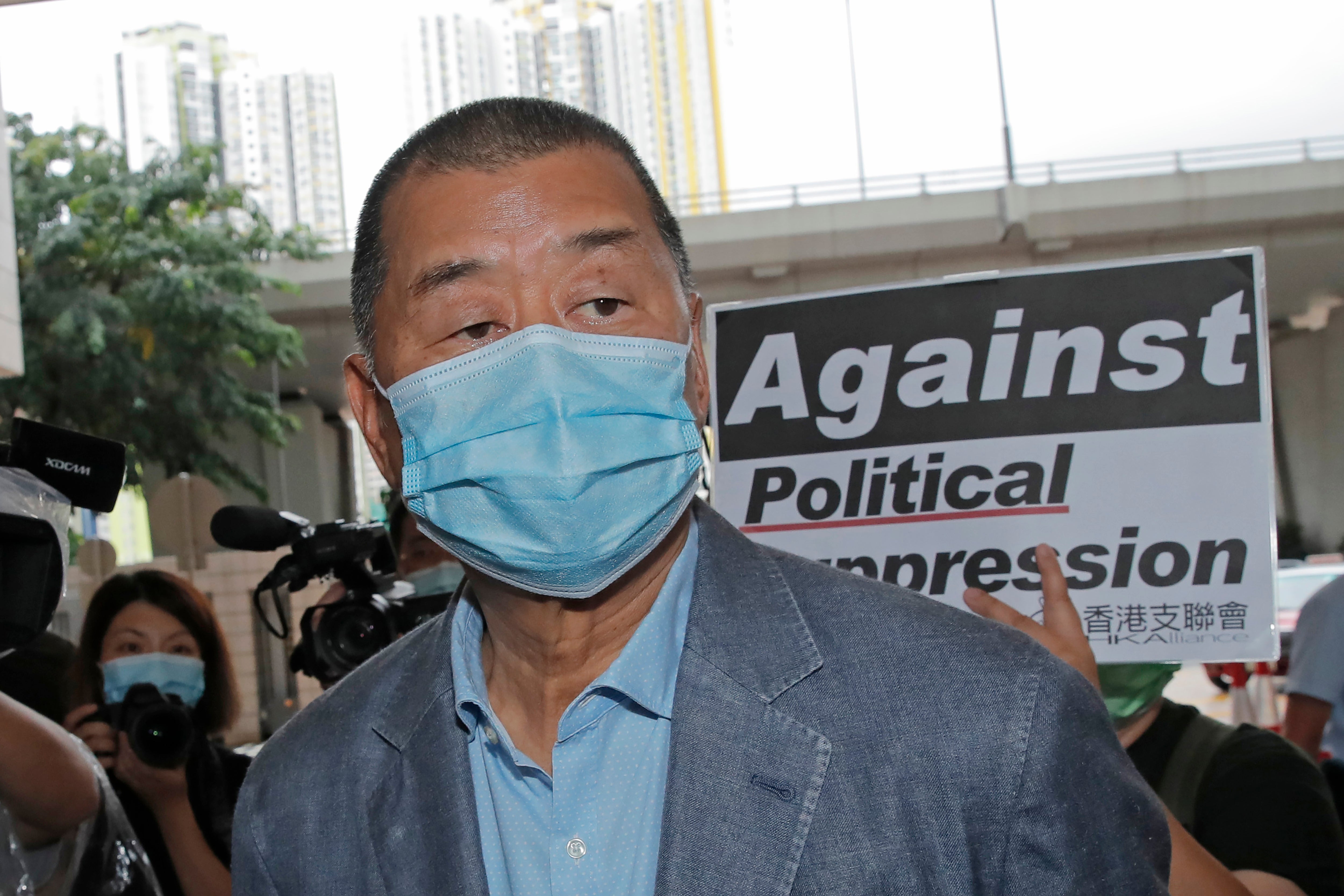Why are we sitting back and watching Hong Kong turn into China?
For now, the bankers and executives think they are immune. But the Communist Party will come for them in time, writes Michael Sheridan


Day by day, freedom is vanishing in Hong Kong. Its renowned media tycoon, Jimmy Lai, a UK citizen, faces life in jail. Reporters Without Borders ranks Hong Kong 140th in the world for liberty of the press. Many of its best and brightest join the brain drain to this country. Yet Britain is all but mute. Why?
For once, one can hardly blame the staff at the Foreign, Commonwealth and Development Office. Their latest report on Hong Kong is a model of diligence. It lists absurd court cases, vindictive prosecutions, petty harassment, a general perversion of the rule of law. Democracy is quenched, democrats jailed. In short, Hong Kong is turning into China.
The diplomats churn out these documents because Britain has a duty to its former colony under the Joint Declaration of 1984 by which Margaret Thatcher agreed to hand back Hong Kong and the Chinese regime agreed to respect its way of life for fifty years after 1997.
For years, the reports were bland. Now, even Whitehall’s finest drafters cannot evade the facts. China has broken its word. Yet what is the conclusion of foreign secretary James Cleverly? Err, well… China “remains in non-compliance” and we will “continue to lead efforts to scrutinise the Chinese government’s actions”. Daunting stuff.
Labour’s shadow foreign office minister, Catherine West, tweeted that the report made “reliably depressing reading”. Yet it is not making the political weather. The “China blob”, made up of insinuating politicians, shameless academics and traders out for the main chance, is creeping back. There is a drift back to business as usual.
The foreign secretary says he raised the case of Jimmy Lai with China’s vice-president, Han Zheng, when that dignitary showed up at the Coronation. Quiet diplomacy, then, except it was so quiet that a court in Hong Kong has just ordered Lai, who is 75, to go for trial in September on charges of sedition and “collusion with foreign forces” under a National Security Law imposed on Hong Kong in 2020.
They take a different approach in the United States, where a robust, well-resourced Congress-Executive Commission on China has listed 29 Hong Kong judges involved in what it called “a parallel legal system” and said the US government “should consider imposing sanctions” on them. They include the judges in the Lai case: Esther Toh, Susana D’Almada Remedios (who both studied law in Britain) and Alex Lee.
Lai’s business – he once published Apple Daily, the most popular newspaper in town – has been destroyed. He is already serving a sentence for fraud, on the risible grounds that he illegally sublet 0.16 per cent of his business space without informing his landlord. A practising Catholic, Lai is said to be relying on his faith to handle a litany of flimsy charges and the likelihood he will never emerge from prison.
“This is lawfare,” says Caoilfhionn Gallagher KC of Doughty Street Chambers, who is on Lai’s international legal team. There’s a particular lesson in the display of judicial might in this week of 4 June, when Hong Kong people used to mark the anniversary of the 1989 Tiananmen Square massacre in Beijing.
The vigils have ceased and their organisers have felt the full force of the law, along with elected politicians, five teenagers who “conspired to incite subversion”, three students who “could have misled children into thinking Hong Kong was not part of China” and five speech therapists whose books for kids about wolves preying on sheep were deemed to be a “seditious” metaphor.
No wonder that more than 144,000 Hong Kong people have come to Britain since the doors were opened. The foreign secretary rightly says that they “make an immense contribution to our society”.
But nobody should have to leave the home they love because Xi Jinping’s hacks, compliant prosecutors and well-paid judges have turned it into a testbed for soft authoritarianism. For now, the bankers and executives think they are immune. But the Communist Party will come for them in time.
That is why the fate of Hong Kong still matters. Lai’s lawyer, Gallagher, told a meeting in Westminster that its methods are an experiment watched by autocrats everywhere. The likes of Vladimir Putin and Turkey’s Recep Tayyip Erdogan, practised abusers of legal norms, are fast learners.
Gallagher listed four techniques: filing multiple lawsuits, using a wide range of laws and regulations over copyright or intellectual property, targeting ‘messengers’ with charges like corruption or fraud rather than defamation and reaching across borders to target opponents abroad.
One example of the latter is 18-year-old Chui Hoi-chun. He is serving three years for “inciting enmity” of China in comments he posted online while outside the territory.
It was no surprise, then, when two smart young Hong Kong students listening to Gallagher (one doing medicine, the other law) said they did not feel safe, even in the mother of parliaments. We can do better for them than that.
Michael Sheridan was a founding foreign correspondent and later diplomatic editor at The Independent, served as Far East Correspondent of The Sunday Times for 20 years and is author of The Gate to China: A New History of Hong Kong and the People’s Republic (2021) and Romans (1995)






Join our commenting forum
Join thought-provoking conversations, follow other Independent readers and see their replies
0Comments